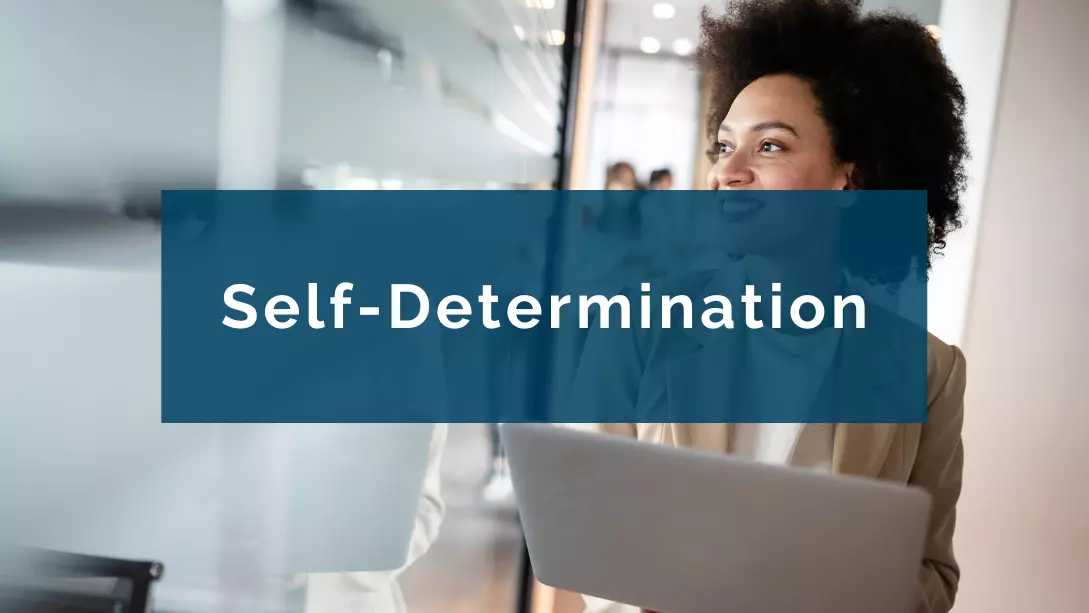Self-Determination Theory and Positive Verbal Feedback
Self-determination theory suggests that for genuine, continuous growth and achievement in life we need intrinsic motivation – the internal wish to do things because we find them enjoyable or satisfying. The idea of positive spoken feedback fits perfectly with SDT. If it meets our requirements for competence and independence, then cleverly crafted feedback could help boost this kind of motivation.
Studies indicate it enhances involvement, promotes a passion for learning and strengthens self-confidence. Thus, abandon the insincere admiration and create a particular, self-determination theory and positive verbal feedback that inspire people to flourish.
Self-Determination Theory
Before we understand self-determination theory and positive verbal feedback, let’s learn self determination theory first. According to self-determination theory, intrinsic motivation stems from three key psychological needs: competence, autonomy, and relatedness.
Competence
This relates to the desire to feel competent and effective. When we achieve accomplishment, learn new skills, or receive good feedback that shows our abilities, we develop a sense of competency. This, in turn, fuels our desire to continue learning and achieving mastery.
Example: When students receive favorable feedback on their writing, they feel more competent and driven to develop their writing skills.
Autonomy
This relates to the need to feel in control of our decisions and behaviors. When we feel pressurized or micromanaged, our inner drive suffers. When we have control over our responsibilities and decisions, we are more engaged and invested in the results.
Example: A child who is allowed to choose a book to read at bedtime feels more autonomous, which increases their likelihood of engaging in reading.
Also Read: Why Do Some Brains Enjoy Fear
Relatedness
This refers to a desire to feel connected and supported by others. Feeling a sense of belonging motivates people to contribute and participate. Positive feedback that recognizes our efforts and contributions reinforces the sense of connectedness, inspiring us to continue participating.
Example: An athlete who receives praise and support from their teammates feels more connected and is more likely to work harder during training.
The Power of Positive Verbal Feedback
Positive verbal feedback is more than just feeling nice, it is a powerful tool that perfectly coincides with the key ideas of Self-Determination Theory.
Fulfilling the Need for Competence
Accomplishments are highlighted in positive feedback, which promotes independence. It gives someone confidence that their skills and efforts are appreciated, which fuels their drive to learn more and advance.
Example:Precise feedback is given to math-challenged students, including, “I know how you tackled the problem through each step.” This validates their proficiency and motivates them to continue honing their craft.
Supporting Autonomy through Feedback
Feedback that prioritizes independent learning promotes self-directed learning. People are more empowered to take charge of their own learning and development.
The Link to Increased Engagement and Enjoyment
Self-determination theory and Positive verbal feedback on effort and progress increases the desire to continue learning, even when faced with obstacles. It fosters a “growth mindset,” in which obstacles are viewed as opportunities for growth rather than roadblocks.

Link Between Self-Determination Theory and Positive Verbal Feedback
The theory of self-determination says that for motivation to be intrinsic, it must satisfy three main needs: competence, autonomy and relatedness. When we look at positive verbal feedback from this perspective, it is clear how well-made feedback can meet the need for competence by showing accomplishments and expertise.
It makes autonomy stronger because it highlights personal methods and pushes for learning that comes from oneself. Self-determination theory and Positive verbal feedback together create feelings of control and ability which increase involvement and pleasure in activities.
The Science Behind Positive Feedback
Studies repeatedly show that a well-designed feedback scenario is connected to intrinsic motivation. Research shows that when individuals receive detailed compliments about effort and approaches, not only outcomes, they become more involved in the task and enjoy it more. This experience of receiving positive feedback enhances the neural pathways related to learning and expertise. Dopamine, which is a type of neurotransmitter in our brains, functions as the reward system.
It reinforces behaviors we desire such as learning and working towards improvement. The feedback related to progress or effort is consistent with a growth mindset. The combination of Self-determination theory and Positive verbal feedback, neural reinforcement and growth mindset forms an energetic source for internal motivation and continuous learning process.
Addressing Challenges and Concerns
Using empty praise too much can lessen its significance, and promoting a reliance on external validation is not the best approach either. Feedback that mixes real praise with helpful criticism, concentrating on particular areas for betterment when necessary, is what works well. It’s important to tailor feedback to how each person learns and their specific needs. A student who flourishes on precise commendation could profit from a more flexible method, while another student might require straightforward direction.
The Self-determination theory and Positive verbal feedback theory gives a strong structure to comprehend how positive verbal feedback could activate inner motivation. When the demands for competence, autonomy, and relatedness are met with good feedback, it creates feelings of control, capability and enjoyment in activities.




